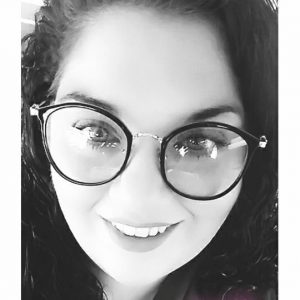Editing: What to Expect
Editing—some writers love it; some hate it. But you can’t be a serious writer without submitting your work to an expert pair of eyes. Probably several pairs. So, as the first part of series on writing, publishing, and book marketing, I thought I would bring in Emerald Barnes, an experienced editor, to give us the low down on this necessary, but often misunderstood, process.
Welcome Emerald! Tell us a bit about yourself and how you became an editor.
I started out my journey as an Indie author after receiving my B.A. in English with an emphasis on Creative Writing. I knew in high school that I wanted to be an author, but it wasn’t until about six years after I graduated did I realize that I wanted to be an editor as well.
Actually, I started out as a proofreader. I’d always been good at picking out and correcting people’s grammar mistakes, which was why I was a beta reader. But it hit me one day that I wanted to expand that into a business.
With the help of a friend, I started my proofreading business. As I began to proofread, I would notice more plot holes than simple grammar mistakes that needed to be fixed, so I’d take note of those for my clients, until eventually, I decided to expand my business into editing as well.
Why do you think editing is an important step before publication, and what do you think an editor can do for writers?
Editing is so important to the publishing process, and authors should never skip editing. Self-edits are helpful, but as the author, you’re simply too close to the book to be objective. An editor can help you see your mistakes and correct them—and with more than just grammar. We see holes in the plot and subplots, character flaws, sections of your book that have no purpose inside your book at all. An editor takes your brilliant idea and helps you develop it further. We help you polish your books.
As an editor, our main objective is to help the author bring an idea into the best possible version of their work as we possibly can. I know that, personally, I only want to see my clients succeed with their books. My goal is to help them publish a book that is entertaining and keep readers coming back for more from this author. If your writing isn’t up to par, readers know that, and it can lead to bad reviews. My objective is to keep my client from receiving bad reviews, especially on the editing/proofreading aspect of publication.
As an editor, I also feel like authors need to have a connection and trust in the editor, and we can provide that. I’ve become good friends with most of my clients, and you need that as an author, someone you can come to when you need advice or help.
What’s the difference between copyediting and content/developmental editing?
Copyediting usually comes after the content/developmental editing. Copyediting is making sure that the author’s work makes sense and that facts are actual. Copyeditors also help with grammar and spelling, but a proofreader is also someone who handles the grammar and spelling (after copyediting).
Content/developmental editing is the main form of edits. It’s when the editor first gets it right after you’ve written it. We see the worst of your writing to make it the best.
It’s where the editor reads through it and tells you what needs to be changed, added, or removed. It’s the point of the revisions where we tell you what works and what doesn’t. It’s probably the hardest part of editing because it’s not always what you want to hear about your own book, but it’s the process of content editing that helps your book become the best it can be.
What are the signs that a writer can benefit from a developmental edit?
If your book has significant plot holes or character flaws, you need a developmental edit. In fact, even if you don’t think your book has it, you still need one. It’s better to be safe than sorry.
If your characters do things that don’t make sense or if you see a mistake in your plot that would most likely need correcting, you need a developmental edit.
If you have any questions about your plot or story, you need a developmental edit.
If you’ve published your book but are getting reviews that say you would have benefited from a good edit, or maybe they say that you have a good story premise but would have done better to have someone read over it, then you need a developmental edit.
What should writers look for when selecting an editor?
When selecting an editor, look for someone who offers references and a sample edit. It’s important to know if you can trust that editor, and if the editor has references that can be trusted.
Sample edits also provide an idea of how the editor works, what s/he finds in a small section of your book can speak volumes, especially if you know something needs to be fixed in the sample.
Also, see if you can find them on social media, see what kind of person they are. It’s important to know who you’re working with, especially if you’ve never “met” them before.
What should writers steer away from when looking for an editor?
Personally, if you’re looking for an editor, you need to find someone who will be open and honest with you, someone who isn’t afraid to tell you what needs to be changed. If the editor cannot provide you with honest, in-depth feedback, they probably aren’t a good fit for you.
Always search for someone who goes in-depth. A simple “I like your book; there isn’t anything wrong,” isn’t what you need.
You need someone who has experience as well. Look for a list of books and/or references. I know some people are new to editing, but they need to be upfront with that as well. If a list of books and references isn’t provided, then ask for it.
Also, steer away from editors who don’t work with your genre. You need someone who has experience with your genre.
Do you recommend a proofreader after the editor is done?
Absolutely! An editor’s job is to correct your plot, characters, etc. And through all of that change and revision, mistakes are expected to be made, which means that you need someone who can catch new grammar mistakes. And, it doesn’t hurt to have as many eyes on a book as possible so nothing escapes notice before publication.
What’s your own approach to editing?
My own approach to editing is very similar to what I’ve discussed through the interview. I will read my clients’ books and get a baseline feel for the book and make comments as I read through it. I’ll take note of mistakes that need to be changed, any confusing parts, parts I don’t feel are necessary, and any character flaws I see along the way. Then, I’ll have my client correct those and return it to me for a second read through. I’ll read the book again, correct their revisions and see if any changes that need to be made escaped our eyes during the first round or see if the remaining parts of the story need to be corrected to mesh with the new revisions. Generally, I only do two read-throughs of a book, but I have done three before if the author and I felt it was necessary.
About Emerald Barnes:
Emerald Barnes resides in a small town in Mississippi and has the accent to prove it. She’s an auntie, a youth leader, a nerd, a reader, a writer, and a family-oriented person. God is number One in her life, and she thanks Him continuously for His love and favor.
She’s also addicted to TV and binge-watching shows, and she has an obsession with superheroes, Star Trek, LoTR, and baking/cooking competitions. When she’s not working, she’s binge-watching TV shows or trying (and failing) to be witty on social media.
Website: www.emeraldbarnes.us
Facebook: www.facebook.com/emeraldbarnes
Twitter: www.twitter.com/emeraldbarnes
Instagram: http://www.instagram.com/emeraldbarnes
Goodreads: http://www.goodreads.com/emerald_barnes
LinkedIn: www.linkedin.com/in/emeraldbarnes
Amazon Author Page: https://www.amazon.com/Emerald-Barnes/e/B004PL38QS
BookBub: https://www.bookbub.com/profile/emerald-barnes

Emerald Barnes, Author and Editor

